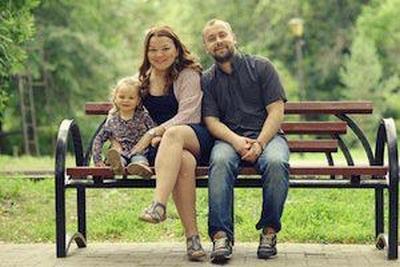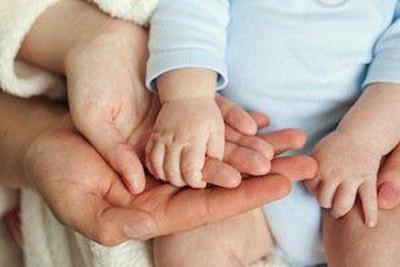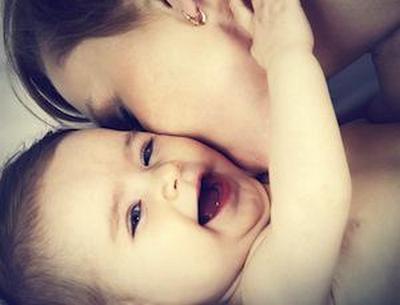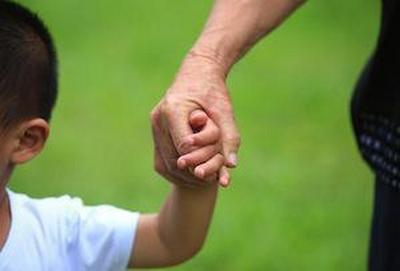Free Initial Consultations
 630-580-6373
630-580-6373With offices in Naperville, Joliet, Wheaton, Plainfield & Chicago
 So you have gone through the long and arduous divorce process, custody has been figured out, property has been divided, so now it will be smooth sailing, right? Not necessarily. Sometimes, even after all the paperwork is finalized and a court order is in place you may need assistance to enforce the order. There are a few different circumstances where you may need the assistance of skilled post-judgment enforcement attorneys to make sure that your court order is followed.
So you have gone through the long and arduous divorce process, custody has been figured out, property has been divided, so now it will be smooth sailing, right? Not necessarily. Sometimes, even after all the paperwork is finalized and a court order is in place you may need assistance to enforce the order. There are a few different circumstances where you may need the assistance of skilled post-judgment enforcement attorneys to make sure that your court order is followed.
Willful Violations
One thing that may make post-judgment enforcement necessary is a willful violation by one party. A willful violation is when one party knows exactly what they are supposed to do according to the court order, but he or she does not comply with that order. Willful violations of a court order can come with warnings, fines, or even jail time. If you suspect the other party is willfully violating a court order you will need to gather evidence and prove this to the court. However, you do not need to prove the violation was willful in order to get the court to step in and enforce the order by requiring compliance of the other party.
 Marriage laws vary by state, but all states prohibit some kinds of marriages. Some people start the divorce process only to find out that their marriage is actually invalid. Conversely, a couple may want to marry but later find out that they cannot. It is important to understand the laws in Illinois and what marriages are prohibited.
Marriage laws vary by state, but all states prohibit some kinds of marriages. Some people start the divorce process only to find out that their marriage is actually invalid. Conversely, a couple may want to marry but later find out that they cannot. It is important to understand the laws in Illinois and what marriages are prohibited.
Invalidity and Prohibition
In Illinois, marriages that are not permitted are termed invalid. In order for a marriage to be declared invalid, Illinois law allows certain people to file a petition for a Declaration of Invalidity of Marriage. Depending on the circumstances, certain aspects of the marriage may still apply.
Prohibited marriages are marriages that are prohibited by law and not allowed to happen in the first place if the clerk knows the circumstances. The distinction between invalidity and prohibition may seem minor, but it is important to understand this difference in order to comprehend Illinois’ marriage law.
 The day before Father’s Day is often referred to as “Fatherless Day” and commemorates fathers who are not able to see their children due to death or separation. It is understandable why several groups of single fathers chose that day to rally at the state capitol in Springfield and at a Lake County courthouse. The two rallies were organized by different groups, but the groups have the same goals: increasing fathers’ access to their children.
The day before Father’s Day is often referred to as “Fatherless Day” and commemorates fathers who are not able to see their children due to death or separation. It is understandable why several groups of single fathers chose that day to rally at the state capitol in Springfield and at a Lake County courthouse. The two rallies were organized by different groups, but the groups have the same goals: increasing fathers’ access to their children.
The rally in Lake County was organized by a group called Illinois for Parental Equality, which works to reform family court to give fathers more time with their children. A similar group called Illinois Fathers organized the Springfield rally. "It can be very hard to spend time away from your child. It's heart-wrenching,” said Illinois Fathers supporter Nick Hickman at the rally.
Are Courts Biased Against Fathers?
Ben Winderweedle, president of Illinois for Parental Equality, feels that the odds are stacked against fathers in family court. However, some people who work in family court do not agree with him. One longtime Libertyville attorney was quoted by the Chicago Tribune as saying that he does not see bias one way or another and that the trend has been towards judges granting more equal parenting time between the mother and father. Other fathers’ rights activists want the default to be 50/50 time between the parents so that the children have equal time with both parents. However, many judges avoid this due to concerns about the child’s stability.
 The New York Post recently reported on a New York City professor who is passionate about helping single and same-sex partnered women get pregnant. However, instead of going through a sperm bank, he has a more unorthodox method and donates sperm in more casual locations, including city bathrooms. Ari Nagel has fathered 22 children around the country, including in Illinois, this way. While many of the children were conceived using sperm he gave to the women, he does admit that about half of the children were fathered the “old fashioned way”. What is especially interesting from a family law standpoint about Nagel and the children he fathered is that he pays child support for five of them. Of course, many fathers pay child support, but Nagel claims that he had agreed in advance with the women that he was providing a service for them and that he had no financial obligation to the potential children. However, even though there may have been an agreement, New York does not recognize donor agreements outside of assistive reproductive technology centers, such as sperm banks.
The New York Post recently reported on a New York City professor who is passionate about helping single and same-sex partnered women get pregnant. However, instead of going through a sperm bank, he has a more unorthodox method and donates sperm in more casual locations, including city bathrooms. Ari Nagel has fathered 22 children around the country, including in Illinois, this way. While many of the children were conceived using sperm he gave to the women, he does admit that about half of the children were fathered the “old fashioned way”. What is especially interesting from a family law standpoint about Nagel and the children he fathered is that he pays child support for five of them. Of course, many fathers pay child support, but Nagel claims that he had agreed in advance with the women that he was providing a service for them and that he had no financial obligation to the potential children. However, even though there may have been an agreement, New York does not recognize donor agreements outside of assistive reproductive technology centers, such as sperm banks.
 A second parent adoption is a way for a non-biological parent to adopt a child while the biological parent’s rights stay intact. There are many reasons why a second parent adoption may make sense for a wide variety of families.
A second parent adoption is a way for a non-biological parent to adopt a child while the biological parent’s rights stay intact. There are many reasons why a second parent adoption may make sense for a wide variety of families.
Second Parent Adoptions
When most people think about adoptions they think about a traditional adoption scenario where the biological parent or parents give up all rights to the child and another person or couple are given parental rights. A second parent adoption is a very different scenario. With a second parent adoption, a biological parent keeps his or her parental rights and the “second” parent is also given parental rights through the adoption process. At the end of the process, another person has all the rights and responsibilities that come with being the legal parent of the child.
Purpose of Second Parent Adoptions
 After your divorce agreement is finalized you may decide that you want to modify some of the terms, including the terms related to parenting responsibility and time. In order to modify the parenting parts of your agreement, you must meet certain conditions. It is important to understand when you can modify parenting time and responsibility in a divorce agreement in Illinois and what you need to prove for a judge to be willing to consider your proposed modifications.
After your divorce agreement is finalized you may decide that you want to modify some of the terms, including the terms related to parenting responsibility and time. In order to modify the parenting parts of your agreement, you must meet certain conditions. It is important to understand when you can modify parenting time and responsibility in a divorce agreement in Illinois and what you need to prove for a judge to be willing to consider your proposed modifications.
When Can You Modify an Agreement?
In Illinois, modification of divorce agreements is governed under 750 ILCS 5/610.5. Generally, parents can modify the terms of parenting agreements if they both consent to the modifications. Outside of both parties consenting, there are other ways to modify the parenting provisions of a divorce agreement. In terms of language, at the beginning of the year Illinois family law moved away from the terms “custody” and “visitation,” and now looks at custody in terms of parenting time and parenting rights. It is important to understand these changes because any modifications moving forward will need to use these terms and concepts.
 If you or your child has been the victim of violence from a family member, you may be considering getting a restraining order to help protect yourself and other family members at risk of being victims of violence. Indeed, it is important to have a basic understanding of domestic violence and restraining order laws in Illinois.
If you or your child has been the victim of violence from a family member, you may be considering getting a restraining order to help protect yourself and other family members at risk of being victims of violence. Indeed, it is important to have a basic understanding of domestic violence and restraining order laws in Illinois.
What is a Restraining Order?
A restraining order, formally called an “Order of Protection,” prohibits a person from engaging in abusive or harassing behavior. Orders of protection are issued after there has been evidence of domestic violence. In Illinois, domestic violence is defined as abuse by one family or household member against another family or household member. “Family or household member” includes a spouse or ex-spouse, children, stepchildren, people who share a child, parents, people who are dating each other or used to date, and people who live together or used to live together. Domestic violence also includes a person with disabilities and his or her caretaker.
 The news came out of Chicago recently that the court has denied Amanda and Leo Ware custody of their three children. Amanda, known at the time as Amanda Hamm, had spent five years in prison for child endangerment after she watched the father of her three children drown the six-year-old, three-year-old, and 23-month-old. News reports say that he allegedly wanted to kill the children because they interfered with the couple’s lifestyle of drugs and sex.
The news came out of Chicago recently that the court has denied Amanda and Leo Ware custody of their three children. Amanda, known at the time as Amanda Hamm, had spent five years in prison for child endangerment after she watched the father of her three children drown the six-year-old, three-year-old, and 23-month-old. News reports say that he allegedly wanted to kill the children because they interfered with the couple’s lifestyle of drugs and sex.
After serving her sentence, Amanda Ware married Leo Ware and had three children together. They had custody of the children until state authorities became aware that Amanda was the person involved in the previous drowning case. The couple was brought to the attention of the Illinois Department of Child and Family Services when a doctor recognized Amanda while she was delivering her most recent child. DCFS then took the three children into state custody.
Earlier this month Cook County Circuit Judge Demetrios Kottaras ruled against the Wares in their application for custody. The judge found that the couple was still unable to care for their children, but could continue supervised visitation with a permanency planning hearing scheduled every six months. In the meantime, the children will remain in foster care.
 It is every parent’s worst nightmare: a knock on the door and an investigation by the Department of Child and Family Services (DCFS) accusing you of child abuse. Even parents that have nothing to hide and have not mistreated their children at all still fear that a wrongful allegation will have ongoing consequences. Hopefully, at the end of the day, the truth will win, but it is important to have some idea of the process to know what you are up against.
It is every parent’s worst nightmare: a knock on the door and an investigation by the Department of Child and Family Services (DCFS) accusing you of child abuse. Even parents that have nothing to hide and have not mistreated their children at all still fear that a wrongful allegation will have ongoing consequences. Hopefully, at the end of the day, the truth will win, but it is important to have some idea of the process to know what you are up against.
Someone Calls DCFS
The Illinois Department of Child and Family Services is the agency that is responsible for investigating claims of child abuse and neglect. DCFS has a hotline that anyone can call to report suspected abuse or neglect of children. There are also people called “mandated reporters”, such as doctors and teachers, that are required by law to inform DCFS if they have any suspicion of child abuse.
Once someone calls DCFS about you or your family, this may be enough to start an investigation. The person who answers the phone call will decide whether there is enough evidence to begin an investigation.
 While children are not often named parties in family law litigation, they are frequently greatly affected by the outcome of family court matters such as parenting time and visitation.
While children are not often named parties in family law litigation, they are frequently greatly affected by the outcome of family court matters such as parenting time and visitation.
Illinois family law has three different ways that the interests of children can be represented. The three types of attorneys are: attorney for the child, child representative, and guardian ad litem. While each may sound similar, there are important differences between these roles and the nuances should be understood.
Attorney for the Child
An attorney for the child is one kind of child representation lawyer. An attorney for the child advocates for the wishes of the child. Unlike the kinds of child representation lawyers listed below, an attorney for the child is not supposed to put his or her own thoughts or feelings into his or her representation and is only to represent a child’s wishes. This is closest to the type of relationship that an adult would have with his or her attorney.
